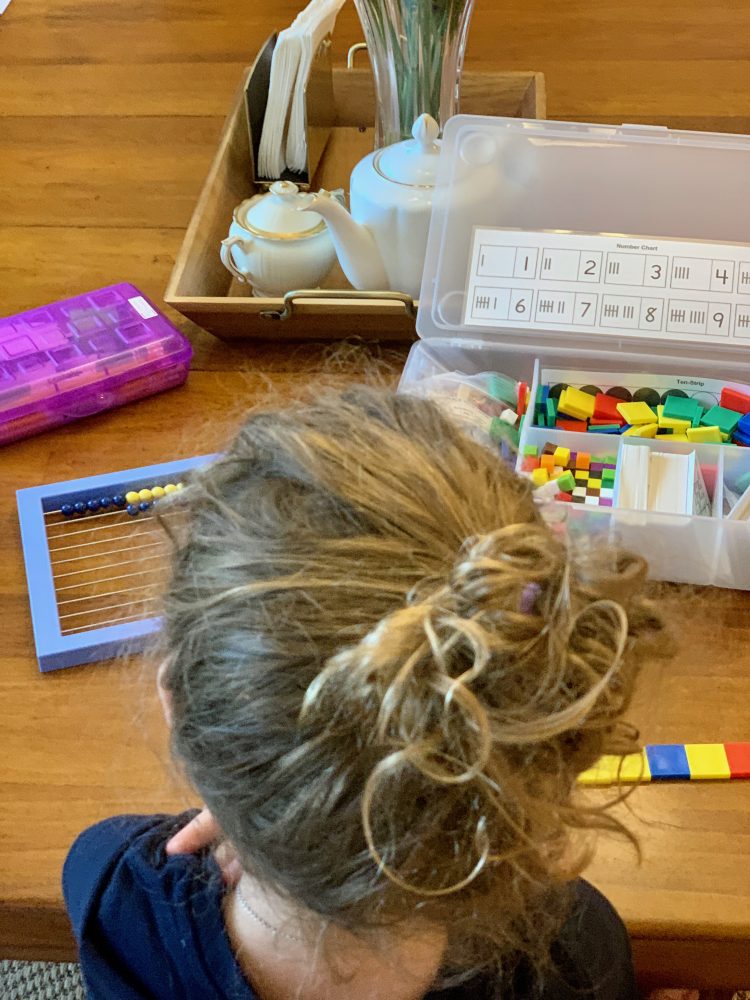
Top Tips from Home School Veterans for Distance Learning Newbies
With millions of students returning to digital classrooms this semester, and our memories of the previous spring largely a panicked blur, it is understandable that some parents, and students, might be struggling with the new arrangement.
If you are trying to supervise distance learning from home and finding the process frustrating for both you and your child you are not the only one. This is a stressful situation for many, and pretending you are not struggling if you are will only lead to more resentment and frustration down the road. But you are not in this alone.
We have pulled together the best advice from veteran home school teachers as well as seasoned online students to help you conquer the coming digital semester.
Distance Learning Tips for Students
Most of these tips are geared towards students, older kids who spend more time studying independently than they do with a parent or teacher.
Check your school’s grading platform every single day and turn those notifications on. You will not be able to rely on your teacher reminding you every day about that paper that is due next week, or the quiz coming up around the corner.
Set a fixed time for school work. Sometimes this will be set by your school as more programs have mandatory attendance. Other times it may be more free form. But having a consistent routine is honestly a lifesaver for preventing mental resistance.
Do not rush through your work. This is not the time to skim through the directions or glance over assignment sheets. Because you will not be conferring with your teachers or fellow students, it is easier to misinterpret or completely skip steps or even entire assignments.
Make an Agenda. Whether online or on paper, having all of your assignments for all of your classes written in one collected place is key to keeping track of everything when it is scattered across different digital platforms especially. (at TNN we use The Lazy Bujo)
Take the time to ask questions and engage teachers. Now more than ever, asking questions is crucial. With online classes clearing up any confusion in the beginning is vital as you may not have an opportunity at the end of the semester for the 1 on 1 clarification you need. Speak up during class or, if you are uncomfortable with that, consider sending your teacher an email. Go through your entire assignment, write out all the different areas that confused you and, when you have all your questions in one place, read it over before hitting send.
Do NOT email your teacher saying “I dnt get the thitd one”.
Explore the technology before you need to use it. No one likes logging in for an online test only to find out they are missing a plugin or it doesn’t work with their browser. Look at the platforms you will need to use, familiarize yourself with them, and be able to use them with confidence.
In a collaborative environment, choose your project partners carefully. This is sound advice no matter what but is especially important when you are unable to meet with group members face to face.
Use alarms and calendars to ensure you don’t miss an assignment. Big test next Thursday at two? Set an alarm for Wednesday, Thursday morning, and Thursday at one. Also, be sure to label your alarms so you remember why your phone is beeping in the first place.
Don’t procrastinate. It can be easy to put schoolwork off until the last minute under the best of circumstances. But without reminders from teachers and fellow students, this problem is only exacerbated. And if you get stuck on an assignment you saved until the last minute, there will be no one to help you through.
Social learners beware. There are many types of learners. Some students learn from their fellow classmates just as much as they learn from teachers. If you are one of those, the coming months will be a struggle for you. You can try and combat this early by forming group chats with some of your classmates, but this may not work for everyone.
Distance Learning Tips for Parents
Most of these Tips are geared towards parents of younger children who require a more hands on approach to at home education.
DON’T TRY TO BE A SCHOOLTEACHER
“Let go of the idea that you have to be like their classroom teacher – they aren’t at school and this isn’t a normal situation. Read books, play board games, bake, go on a bug hunt, jump on the trampoline, watch awesome documentaries, write to friends, connect with others using technology, build Lego, and ask them to think of ways to help others feel calmer and more ok with the situation at hand.”
Kylie, mama of one, 7
HARNESS THE POWER OF YOUR CHILDREN’S INTERESTS
“Connect your children’s learning to their interests in order to engage them and keep them interested. Ask them to write a letter to a beloved relative or friend to strengthen their writing skills.”
Sabrina, mom to two kids, 5 and 7
ACCEPT THAT YOUR HOUSE WILL BE MESSY
“Forget about keeping the house tidy! Once you let this go, happiness and learning will follow.”
Sarah, mama of four, 7, 5, 3 and 1
KNOW WHEN TO WALK AWAY
“It’s more important that children enjoy the experience than get it right every time. If they feel pressured or begin to not enjoy something, let it go and come back another time. Unless the lesson is persistence or pushing through when things are difficult – in which case, gently encourage them to keep trying!”
Corrine, mom to two kids, 5 and 8
TEACH THEM INDEPENDENCE
“This is a great time to support the building of your kids’ self-help skills, such as making their own breakfast and lunch, making their bed and tying their shoelaces.”
Kylie, mama of one, 7
TURN EVERYDAY MOMENTS INTO LEARNING EXPERIENCES
“Forget the idea that learning only happens at a desk with a pencil and paper. Learning can occur anywhere at any time! Gardening can be science, language and math all at once. Baking is also a great way to practice math skills. Children are naturally curious, so let them choose activities they’re interested in, and then find opportunities for learning in them.”
Sabrina, mom to two kids, 5 and 7
DON’T BE AFRAID TO TACKLE CURRENT EVENTS
“I get my teenagers to watch a documentary a day – today it was about Africa’s deadliest animals. We also do a Word of the Day and today it was virus! I know, straight into the hot topic, but it led to a productive discussion. And they’re also journaling about homeschooling and coronavirus updates.”
Jacqui, mom of three, 16, 13 and 11
DON’T EXPECT ALL YOUR CHILDREN TO LEARN THE SAME WAY
“If you have more than one child, they may not always want to do the same thing at the same time. Mine certainly don’t! Try to learn more about what each of your children is interested in and how they learn, and do your best to give them tasks and activities that are adapted to their interests and needs.”
Sabrina, mom to two kids, 5 and 7
MAINTAIN ROUTINES
“Make sure to keep the same morning and evening routines. Think of them as your arms! These routines – like your arms in a hug – offer support at a time of upheaval and something to lean against when everything else might seem a bit nuts.”
Kylie, mama of one, 7
NURTURE EMOTIONAL INTELLIGENCE
“Emotional intelligence is just as important as academic skills, so encourage your child to identify how they’re feeling during activities. Take a break if they’re feeling frustrated, but use it as an opportunity to identify those feelings and strategies to deal with them. Wait until the big emotions have passed, though, or it won’t be pretty for anyone!”
Sabrina, mom to two kids, 5 and 7
Give your kids some ownership over their day.
“My biggest piece of advice for families thrown into the homeschooling world is to try not to recreate school at home. I actually had them sit down and tell me what they would like to do throughout the day. ‘OK, we’re going to do math and then we’ll do some art and then we’ll do science. And then what do you guys think? OK. You want to go play outside for a while? That’s fine.’ Get the hard stuff out of the way first, then let them follow their own curiosity.”
Blair Bailey, mom of 6, homeschooling for 12 years.

Be flexible and Forgiving / Accept Change
It’s better to ease into it than hold on to tough expectations for the whole family. Try to give everyone just a little bit of grace and try to give yourself a little grace, too. Even for veteran homeschoolers, the coronavirus pandemic has upended regular activities, like science clubs, coop classes, and debate. Don’t forget to just breathe and be there with your kids.
The Big Take-Aways
Top Tips for Distance Learning
- Find a Comfortable Routine before worrying about being productive – Christy M
- Don’t Try to do everything every day. There will be days when the laundry piles up or math is the only subject you get to and that’s ok – Christa L
- Be gracious, to yourself and your children – education and learning are more than books and tests. Take it one breath at a time when one day is too much – Curt-Cari W.
- Everything is a learning experience – whether that’s math or emotional awareness or how to make mac and cheese.
- Home school doesn’t have to be public school at home. Focus learning opportunities on your childs unique interests
And, my favorite piece of advice of all time –
Your kids will learn despite your worst efforts. Trust – Karen G.
As much as we struggle with recognizing it, we are still in the middle of an unprecedented (in our lifetimes) global event. The underlying low levels of stress will continue to impact us even if we don’t think they do. Stress, lack of human interaction, and general anxiety at the state of the world are to be expected and should not be minimized or pushed to the side.
Take time for yourself, take time for your family, and take time to be there for each other in whatever ways we can over the coming months.
We are all in this together.
For more Distance Learning tips from students who’ve been there check out the advice from Jori Krulder’s High School English class HERE.
Check out this and more original content available every week at TheNerdyNanny.com by subscribing to us on Facebook or Instagram.
You can also check out Eve Daniels, author of The Nerdy Nanny books, on YouTube where she gives writing and academic advice as well as updating you on all of her latest and upcoming projects. Start doing the tips in this article
Sources
IACET Personal Recomendations -Karen ‘High School Junior’
Jori Krulder, English teacher of 23 years Rocket City Mom The Tot
Parents.com Houston Public Media Real Clear Education
SimpleHomeSchool.Net Confessions of a Homeschooler

https://virtualschooling.wordpress.com/2021/05/22/keys-to-a-sustainable-online-learning-program/?unapproved=151757&moderation-hash=5beb8598dc97040c7f2d1ed495b61de1#comment-151757